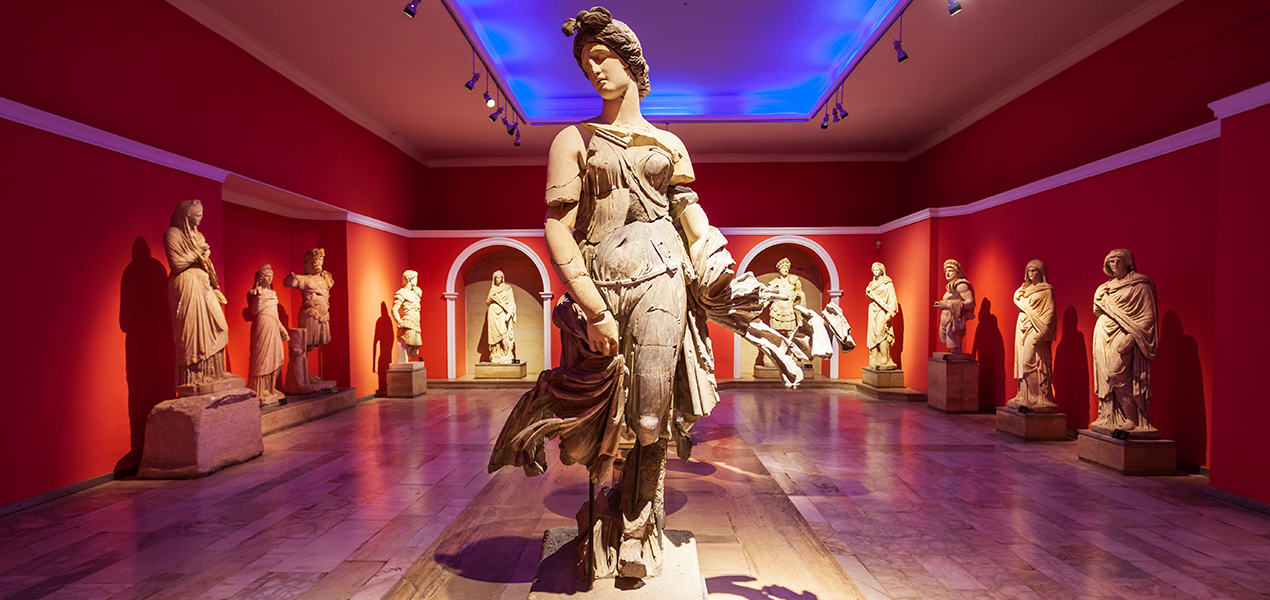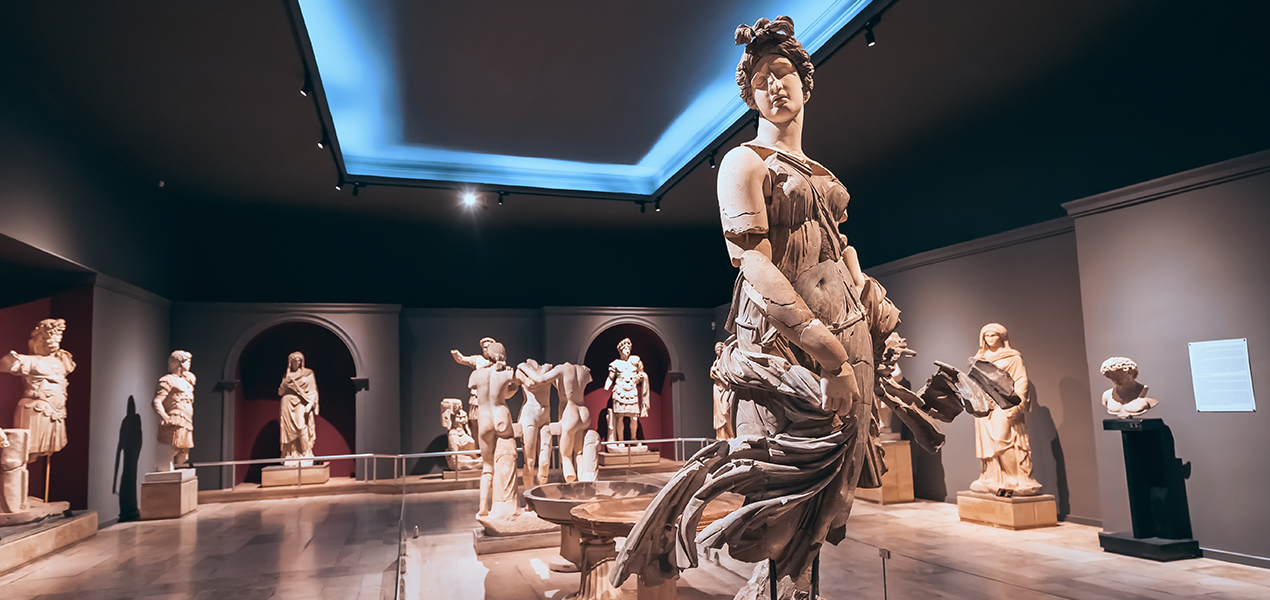Antalya Museum Embraces A Cultural Heritage
Since the day it was founded, Antalya Museum has been an exceptional museum where the archaeological diversity and cultural assets of the Mediterranean Region are preserved and priceless artifacts discovered during archaeological excavations in the region are exhibited.
The foundations of the Antalya Museum were actually laid in 1919 when Süleyman Fikri Erten, a high school teacher with a passion for archaeology, converted a small mosque next to the Tekeli Mehmet Pasha Mosque into a museum. Erten opposed the actions of Italian archaeologists who had begun collecting and transporting ancient artifacts they found in the region to their own consulates during the Italian occupation of Antalya. He managed to retrieve these artifacts from the Italians and started collecting them in this small museum.
After 1937, the Yivli Minare Mosque was used as a museum and in 1972 Antalya Museum moved to its current building. Awarded the "Special Award of the Council of Europe" in 1988, Antalya Museum is an enormous and impressive historical sightseeing area, covering an area of 30,000 square meters, with different exhibition halls, including an open-air exhibition area, sculptures and a wide variety of archaeological artifacts,
Cultural artifacts that have witnessed history
Located in Antalya, a region with a rich historical past in Anatolia, the museum excellently portrays the relationships and cultural diversity of civilizations that have existed around the Mediterranean throughout history and bears the responsibility of preserving the significant ancient cultural regions within its borders including Lycia, Pamphylia, and Pisidia.
Antalya Museum, one of Turkey's most comprehensive archaeology museums, takes both local and foreign tourists on a historical journey. The museum offers various exhibition halls where visitors can explore detailed and well-preserved artifacts including the Children's Section, Natural History and Prehistory Hall, Ceramic Works Hall, Regional Excavations Hall, Emperors and Empresses Hall, Gods and Goddesses Hall, Mosaics Hall, Perge Theatre Hall, Sarcophagi Hall, Coins, Small Objects and Icons Hall, Cult of the Dead Hall, and the Antalya Museum Garden, among many other impressive sites.



